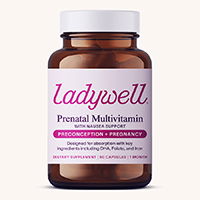Navigating endometriosis can be a challenging journey, but with the right self-care strategies, you can find natural relief and manage your symptoms more effectively. Endometriosis self-care is crucial for improving your quality of life, as it empowers you with the knowledge and tools to cope with endometriosis on a daily basis.
In this guide, we will explore practical endometriosis management techniques that offer natural relief and help you feel more in control of your health. From dietary adjustments to stress management, these endometriosis tips are designed to support your well-being and provide a holistic approach to managing this condition.
Let's delve into self-care strategies for endometriosis that can help you lead a more balanced and comfortable life.
Understanding Endometriosis
What is Endometriosis?
Endometriosis is a chronic condition where tissue similar to the lining inside the uterus starts to grow outside of it. This misplaced tissue acts like regular uterine tissue during the menstrual cycle, breaking down and bleeding. However, because it has no way to exit the body, it can lead to inflammation and scar tissue, causing severe pain and other symptoms. Commonly affected areas include the ovaries, fallopian tubes, and pelvic lining.
Symptoms vary but often include pelvic pain, especially during menstruation, and can sometimes lead to fertility issues. The condition affects millions of women globally and is often diagnosed in women of reproductive age. Understanding endometriosis is crucial for effective endometriosis management, as it helps in recognizing symptoms early and exploring self-care strategies for endometriosis. By gaining knowledge about this condition, women can better communicate with healthcare providers and explore natural relief options for endometriosis.
Common Symptoms and Challenges
Endometriosis presents a range of symptoms that can vary widely among individuals. The most prevalent symptom is pelvic pain, which often correlates with the menstrual cycle. This pain can extend to the lower back and abdomen, making daily activities challenging. Other common symptoms include painful periods, pain during intercourse, and excessive bleeding, either during periods or between cycles. Additionally, women may experience digestive issues like bloating, constipation, or diarrhea, particularly during menstruation.
One of the significant challenges of endometriosis is its potential impact on fertility, making it difficult for some women to conceive. These symptoms not only affect physical health but can also lead to emotional distress, including anxiety and depression. Recognizing these symptoms is vital for effective endometriosis management and implementing self-care strategies for endometriosis. By understanding these challenges, individuals can better navigate their health journey and explore natural relief for endometriosis.
Self-Care Strategies for Relief
Diet and Nutrition Tips
Diet plays a crucial role in managing endometriosis symptoms and can offer natural relief for endometriosis. Focusing on anti-inflammatory foods can help reduce pain and inflammation associated with the condition. Incorporate plenty of fruits, vegetables, whole grains, and lean proteins into your meals. Omega-3 fatty acids, found in fish like salmon and flaxseeds, are particularly beneficial. Conversely, it's wise to limit red meat, dairy, and foods high in trans fats, as they can exacerbate symptoms. Additionally, reducing caffeine and alcohol intake may help alleviate some discomfort.
Consider consulting with a nutritionist to tailor a diet plan that supports your specific needs. Supplements, such as those offered by brands like Ladywell, can complement dietary efforts by providing essential nutrients that support hormonal balance and overall well-being. By adopting these dietary adjustments, individuals can enhance their endometriosis management and improve their quality of life.
Exercise and Physical Activity
Regular exercise is an effective way to manage endometriosis symptoms and achieve natural relief. Physical activity helps reduce inflammation and increase endorphin levels, which can alleviate pain and improve mood. Consider incorporating low-impact exercises such as walking, swimming, or cycling into your routine to avoid straining the body. Yoga and Pilates are particularly beneficial as they enhance flexibility and reduce stress, which is often linked to symptom flare-ups. Aim for at least 30 minutes of physical activity most days of the week, but listen to your body and adjust your routine as needed, especially during flare-ups.
By maintaining a consistent exercise routine, individuals can enhance their endometriosis management, improve cardiovascular health, and boost their overall well-being, making exercise a key component of self-care strategies for endometriosis.
Empowered Endometriosis Management
Holistic and Natural Remedies
Holistic and natural remedies offer additional avenues for managing endometriosis symptoms. Complementary therapies such as acupuncture can help reduce pain by stimulating specific points on the body, promoting healing and relaxation. Herbal supplements, like Ladywell's Daily Hormone Balance supplements, provide plant-based support to alleviate symptoms like hormonal imbalances and mood swings.
Ingredients such as chasteberry and ashwagandha are known for their hormone-regulating properties. Aromatherapy, using essential oils like lavender and chamomile, can also offer stress relief and improve sleep quality. Mindfulness practices, including meditation and deep-breathing exercises, help manage the emotional impact of endometriosis by reducing anxiety and promoting calmness.
By integrating these holistic approaches, individuals can enhance their endometriosis management strategy, promoting overall well-being and achieving natural relief for endometriosis.
Building a Support System
Building a robust support system is crucial for effectively managing endometriosis. Connecting with others who understand the challenges of endometriosis can provide emotional comfort and practical advice. Consider joining support groups, either in-person or online, to share experiences and coping strategies. These communities can offer a sense of belonging and reduce feelings of isolation. It's also important to communicate openly with family and friends about your condition and how it impacts your daily life. This transparency can lead to better understanding and support from loved ones.
Engaging with healthcare professionals who specialize in endometriosis is equally important. They can offer guidance on treatment options and self-care strategies for endometriosis. Additionally, consider involving a mental health professional to help navigate the emotional aspects of living with a chronic condition. By fostering a supportive network, individuals can feel more empowered in their endometriosis management journey, enhancing their overall well-being.

















































